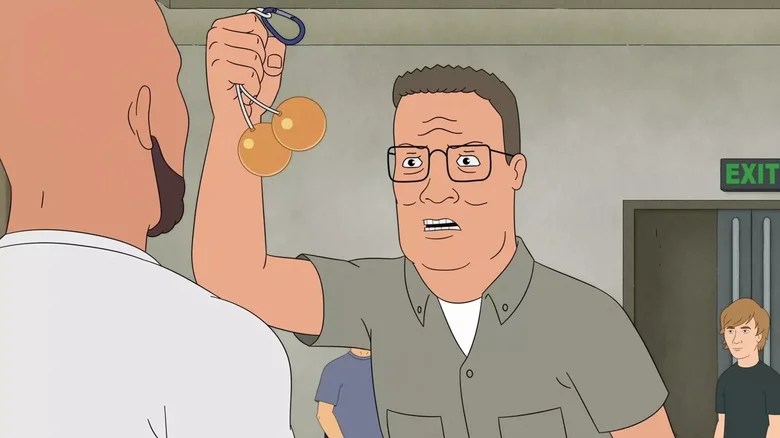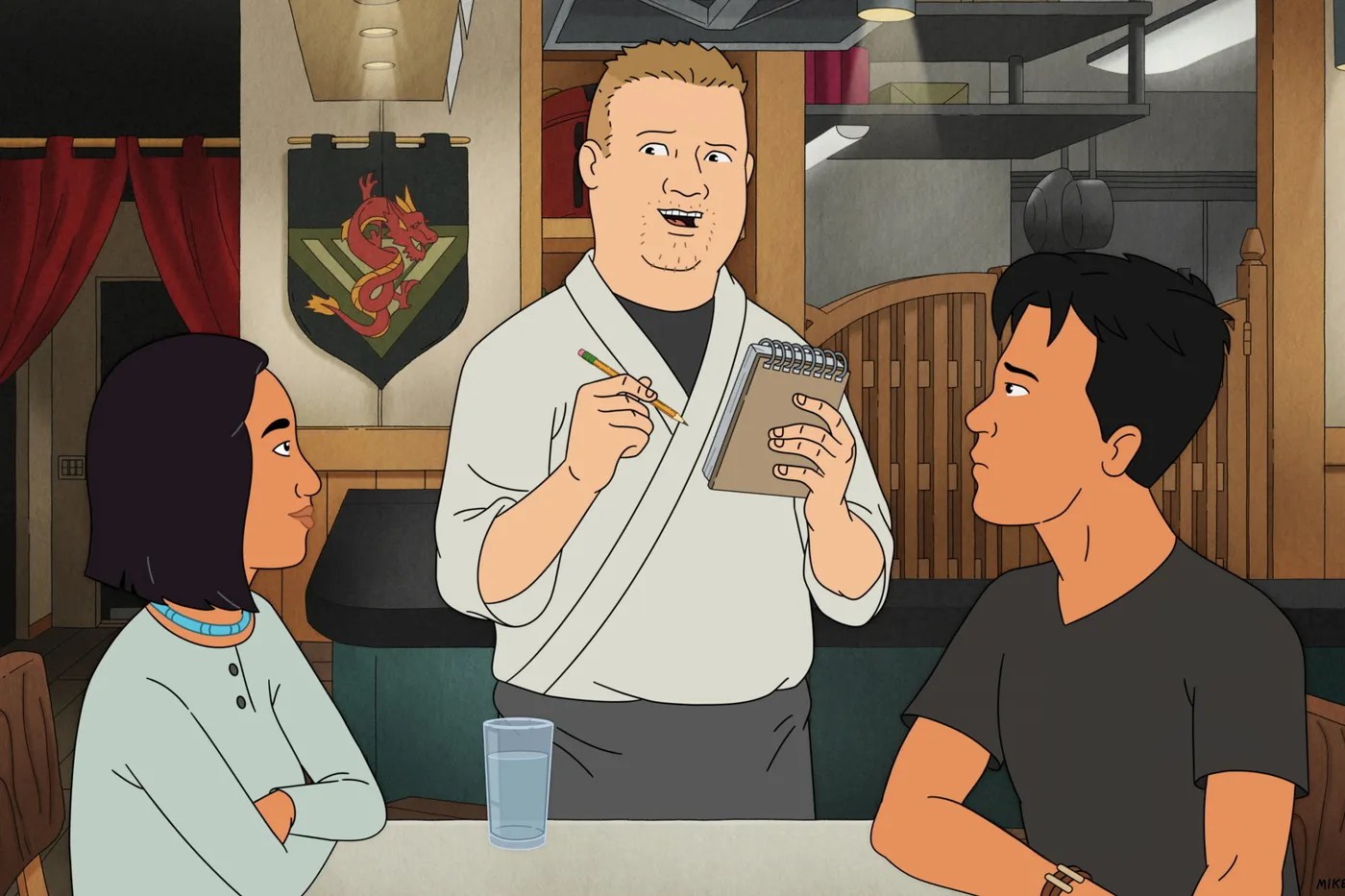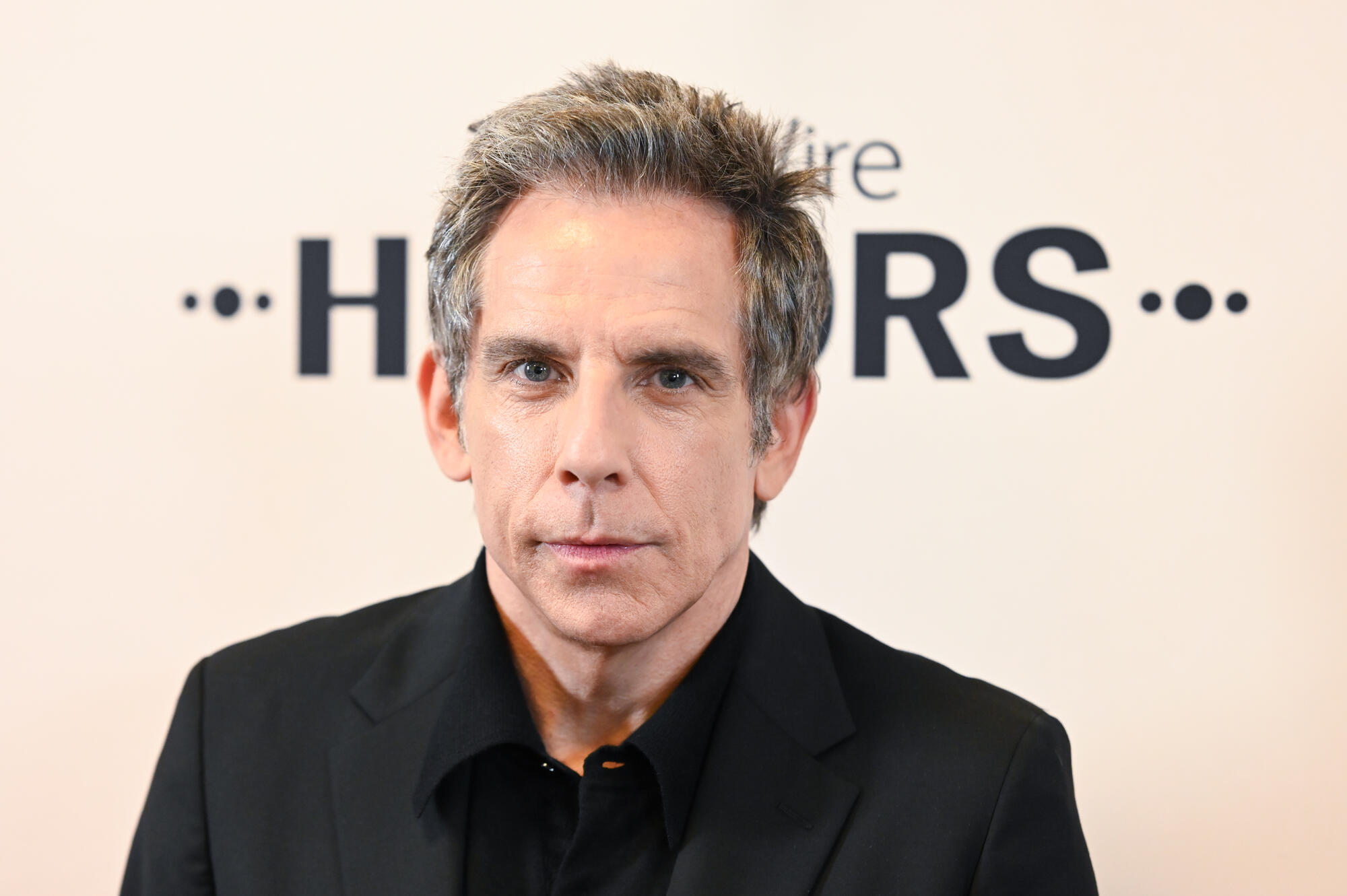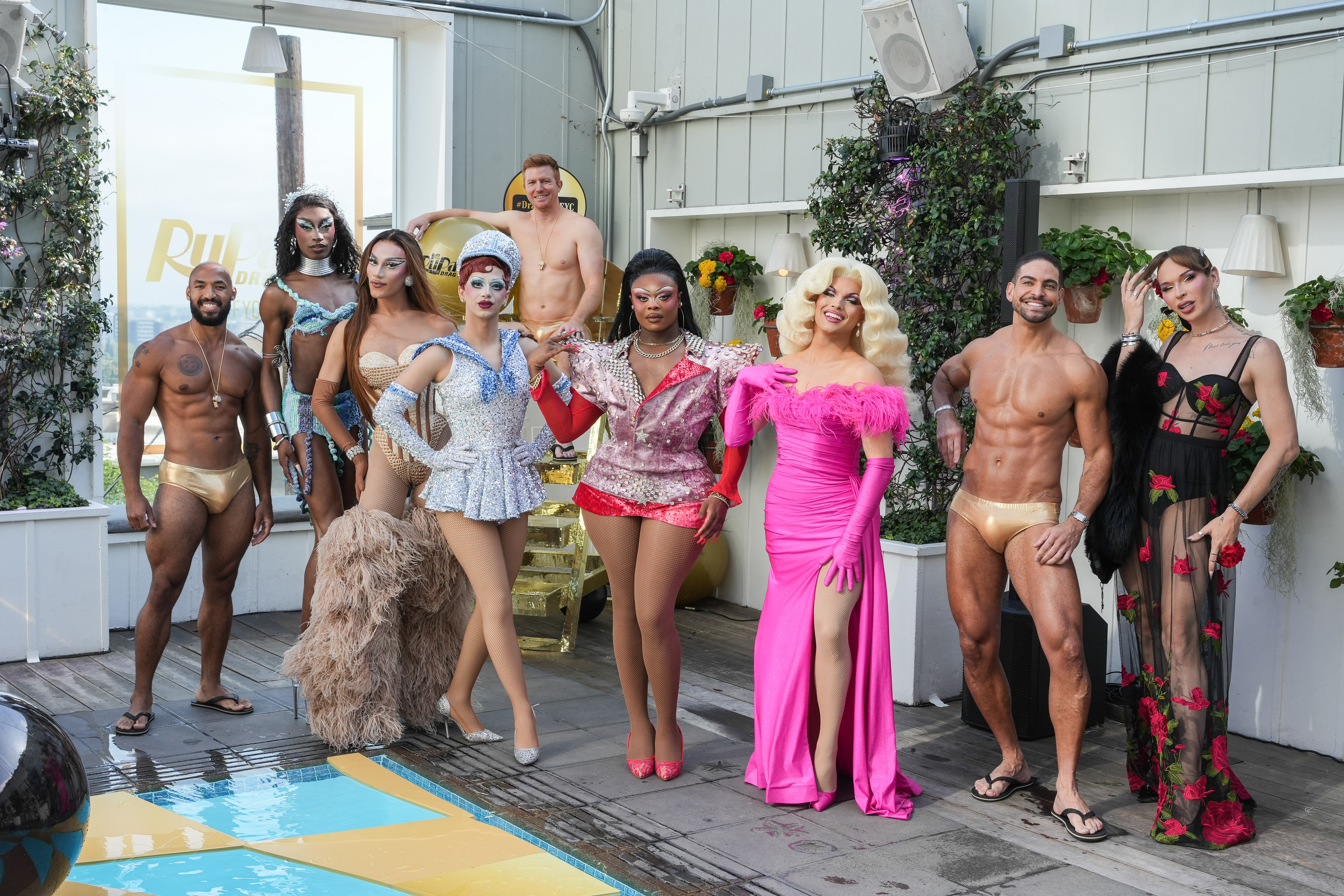[Editor’s note: This interview contains minor spoilers for Season 14 of “King of the Hill.”]
For almost 15 years, “King of the Hill” was one of the most reliably funny and consistently comforting shows on network television. Mike Judge and Greg Daniels’ animated sitcom managed a tricky balancing act: Its protagonist, the old-fashioned traditionalist Republican Hank Hill (Mike Judge), maintained politics out of date with a changing culture, and with views often more conservative than many of the writers on the show’s staff.
But the series also admired Hank’s positive attributes — his work ethic, his fundamental decency — never reducing him to a one-note stereotype. In many ways, the show had its cake and ate it, too. It was a lightly satirical portrait of conservative America that conservative viewers themselves could enjoy, a series that treated its characters — from the strait-laced Hank to the conspiracy-theory-spouting Dale Gribble (Johnny Hardwick) — as both objects of laughter and endearingly lovable despite their flaws.
Now, after getting canceled unceremoniously in 2014 to make room for a “Family Guy” spinoff, “King of the Hill” has been resurrected for streaming, with all 10 episodes of its new 14th season dropping on Hulu this Monday. Parts of the formula have changed: Time has passed in Arlen, Texas (although not exactly the amount of real time since the series went off the air), and Hank and Peggy (Kathy Najimy) are returning as retirees and disoriented outsiders, having spent several years working in Saudi Arabia and living in a company compound stylized after an old-school Americana that doesn’t exist anymore. Their son Bobby (Pamela Adlon), perpetually a hyperactive middle schooler in the original, is now a young adult operating a “Japanese/German fusion” restaurant in Dallas.
But the fundamentals of the show, from its cowbell-licked opening theme to its wry sense of observational humor and nostalgic warmth, still remain. Which begs the question: How do you make a show like “King of the Hill” work in an era of political discourse so much more divisive and stressful than the largely optimistic Clinton years it was born under, or even the turbulent Bush era?
For new showrunner Saladin K. Patterson, it was one of the first questions he had when Judge and Daniels hired him to work on the project: how to adapt the show for a time where, as he puts it, “just flying an American flag in your front yard means something totally different.”
“‘King of the Hill’ has always been a show that talked about cultural issues. People will say it was a political show, but it really wasn’t that much a political show as it was a cultural show,” Patterson said in an interview with IndieWire. “To me, what was most interesting was taking a character like Hank who represented the common sense middle, where we have more in common than we have differences, and putting him back in the world today, where the extreme has moved so far to where that middle looks like the other side to them.”

Patterson was a longtime fan of the original “King of the Hill” series — about six months after the show first premiered, he wrote a spec script for an episode as part of a writing fellowship program at Disney. A few years later, he was offered a job on the writing staff, and turned it down to work on “Frasier” instead.
“That’s something that Greg Daniels never lets me live down,” he said. He remained in touch with Daniels, and when discussions began about bringing “King of the Hill” back to TV, Daniels reached out to him in part because of his work on the 2021 “Wonder Years” remake, another update of a beloved show for a contemporary audience.
Together with Judge and Daniels, Patterson wrote the pilot of the revival, deciding that the hook of the series would be seeing Peggy and Hank adjust to a changed Arlen and a changed culture, positioning Hank as a fish-out-of-water in his own home. “That felt really interesting to me, to be able to explore those sorts of things as a way, because everyone will relate to Hank Hill, and when you see how things are shifted so far away from Hank, it may help us to turn the lens on ourselves, too,” Patterson said.
Current U.S. political discourse of also affected the writing of Dale, who in the original series represented the most extreme fringe in terms of conspiracy theories. The early Seasn 14 episode “Bobby Gets Grilled” — where he shares conspiracy theories at a George Bush museum tour that then grow popular among the rest of the attendees besides Hank — demonstrates how, in many ways, the culture has shifted rightward even of him.
“He’s still the fringe in his group of friends, but Dale can now point to society and say, ‘Hey, I’m not that crazy,’” Patterson said. “In real life, there are theories that surpass even Dale’s level of craziness that people will latch on to.”
Another of this season’s more blatantly political episodes is “No Man Left Behind,” which sees Hank bring his young half-brother to a masculinity workshop that heavily recalls the rhetoric of manosphere social media personalities like Andrew Tate. The episode functions almost as a mirror to the original series, which rooted its main conflict in Hank’s very traditional vision of masculinity and his difficulty relating to his son’s interests. Here, contrasted with a regressive rhetoric that promotes misogyny, Hank’s old-fashioned nature suddenly looks progressive.
“The original series did a great job showing how concepts of traditional masculinity were butting heads with society at the time,” Patterson said. “Hank was trying to raise a son in this environment where sometimes he didn’t see things the same way, or he was considered too old-fashioned, right? Now, Hank comes back to an America [where] just the word masculinity can be used as a pejorative. Those concepts have just been pushed to the extreme, to where it is toxic. We wanted to see how Hank would recognize that, react to it, and how he would try to correct it.”

Outside of politics, the updating of the series and the decision to let real time pass in Arlen — a rarity for an animated series — led to new story avenues for the writers. Over the course of the season, Peggy and Hank both deal, in their own separate ways, with frustrations about retirement. Bobby, meanwhile, is an adult now dealing with real, mature romance and a career. Patterson, Judge, and Daniels were all inspired by their own experiences as parents with children in their twenties while writing Bobby’s storyline of navigating early adulthood, and particularly with Hank’s storyline of learning how to let Bobby make his own decisions in life.
“Hank always said, ‘That boy ain’t right.’ Well, now, that boy is a man, and that man can make his own decisions,” Patterson said. “And you can’t tell a man what to do.”
These conflicts take place across a season that, while still full of standalone stories, is slightly more serialized than the original show, in part thanks to the immediate 10-episode release model Hulu used for the season, as opposed to the 22-episode seasons that made “King of the Hill” a rerun staple for years on Fox and Adult Swim. That shift changed the storytelling of the show in many ways, leading the writers to prioritize efficiency in how they handled the character arcs.
“Say we wanted to end the Bobby-Connie relationship at a certain point. When you have 22 episodes, you can lay out an arc in a lot more detail in terms of what you want to show. And you can have two steps forward, one step back. We only have 10. You have to be very efficient in the episodes that you dedicate to a certain story arc. You have to kind of accomplish a lot in those so that the audience is still along for the ride. That certainly is a challenge,” Patterson said. “It’s not necessarily always a bad challenge. 22 episodes, that’s a lot, and towards the end, you often run into story fatigue, and it’s really hard to keep from repeating yourself. So that’s something that you don’t have to worry about as much when you have these 10-episode seasons. It certainly does make you more efficient, and also it means that there are a lot more stories we have to tell that we’ve talked about and broken.”
“King of the Hill” has not yet been renewed for another season at Hulu, but Patterson already has plenty of ideas for where he wants to take these characters. In particular, he wants to revisit Hank’s old workplace, Strickland Propane, and check in on the cast from that side of the series who don’t appear in the first season of the revival. He’s also interested in exploring more of Hank and Peggy’s life in retirement, and especially Peggy’s potential experiences as a woman experiencing menopause.
One other idea Patterson has is a direct recognition of the characters of Luanne and Lucky (voiced by the late Brittany Murphy and Tom Petty), who were not recast and do not appear in the revival (Hardwick and cast member Jonathan Joss also died during and after production of the season; they receive onscreen tributes in Episodes 7 and 10). The series doesn’t directly address their absence from the Hills’ lives, a decision Patterson said came after much thought from the writing team, though they felt strongly that they shouldn’t be recast.
“Sometimes, the best thing you can do is hang that jersey up in the rafters and retire that number,” Patterson said. “If we’re blessed to do more stories, the fans will see that we have a way to recognize that they still exist in this world in a way, to still feel like it honors them, but still stays true to the story we’re telling now.”
“King of the Hill” Season 14 is now streaming on Hulu.



